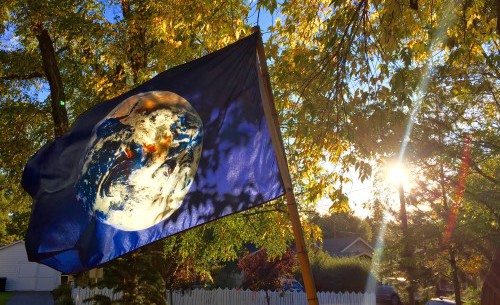Our Values and Commitments
Through unique programs and partnerships, we strive to engage as many people as possible in our mission: To embed sustainability into daily life in Central Oregon.
The Environmental Center is on the traditional land of the Northern Paiute, the Wasco, and the Warm Springs tribes, known as The Confederated Tribes of the Warm Springs Indian Reservation of Oregon. We recognize and respect Indigenous Peoples as the original stewards of this land where we live, work, recreate, and learn.

Our Values
The Environmental Center's organizational values are an extension of our mission and vision: to embed sustainability into daily life in Central Oregon.
Commitment to Equity
Our commitment to equity is strengthening as we grow, and our team is actively integrating what we learn into our work. We invite feedback around this statement, and more importantly, we invite you to join us and engage in these important conversations together.
The Environmental Center’s mission is to embed sustainability into daily life in Central Oregon. We define Central Oregon as Deschutes, Crook, and Jefferson counties. Sustainability is supported by three interdependent pillars that influence one another (for better or for worse): a healthy environment, social equity, and economic vitality. We see sustainability as both an active process and an outcome we strive for. It is what we want to achieve; and it is also how we get there. Our work helps to shape sustainable communities that meet human needs equitably, live within our planet’s ecological limits, and build a prosperous economy for all — without compromising the ability for future generations to do the same.
Here in Central Oregon, The Environmental Center has historically paid close attention to nurturing the healthy environment pillar by improving environmental literacy and access to outdoor education, and helping our community to conserve water and energy, to reduce waste, and to transition away from fossil fuels. More recently, we have bolstered the economic pillar by advocating for policies and infrastructure that support smart growth, safe walking, biking and transit, and by partnering with environmentally responsible businesses. We recognize now that we have often neglected the equity pillar of sustainability. We have not paid enough attention to meeting the needs and including the voices of individuals who are most often impacted by environmental degradation and climate change — including Black, Indigenous, and people of color (BIPOC), people who are LGBTQ+, people with diverse abilities, and people and families with low incomes. In addition, our predominantly white staff and board collectively do not represent the full spectrum of people who make Central Oregon their home.
This is not an acceptable path forward. Prioritizing and investing in social equity is imperative to achieving our sustainability mission. We must work on all three pillars. We commit to prioritizing equity and accessibility in the decisions we make, partnerships we build, programs we deliver, and outcomes we seek to achieve. We will work to ensure that our whole community is included in shaping and benefiting from a sustainable future for Central Oregon– especially our neighbors who are most impacted by systems of oppression. This requires us to recognize, understand, and dismantle white supremacy in our organization and local communities. Looking inward, we commit to being a more welcoming organization. Working toward sustainability is difficult and complex, and requires organizational strength and resiliency to play the long game. Research shows that organizations who build diverse, inclusive teams and programs are more effective because they are better equipped to develop relevant and effective solutions for today’s challenges.
The Environmental Center’s work in Central Oregon is one piece of a much larger movement to reduce and adapt to the impacts of human caused climate change. We help to develop local, regional solutions through education and policy discussions. We also look to environmental justice organizations, communities of color, and Indigenous communities for leadership and guidance on just solutions to the climate crisis. Collaboration is key; and so is uplifting and supporting other individuals and organizations doing the work when we’re not the right people for the task at hand.
Learn With Us!
Here are a few resources we've used to inform our work. We invite you to check them out and learn with us! We will be rotating these resources regularly. If you have a suggestion for a resource (article, website, video, interview, etc) please reach out to Communications Manager amelia@envirocenter.org.